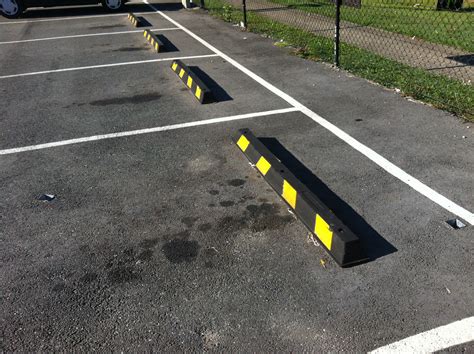If you have ever experienced the frustration of your car suddenly coming to a stop, you are not alone. Car stops can be unpredictable and inconvenient, but understanding why they happen and how to react can make all the difference. In this blog post, we will explore the various aspects of car stops, from common reasons for them to the impact of weather on your vehicle’s performance. We will also discuss how proper maintenance can prevent car stops and what to do when you find yourself in this situation. Additionally, we will delve into troubleshooting techniques and when it’s time to seek professional help. By the end of this post, you will have a comprehensive understanding of car stops and feel more equipped to handle them if they occur. So, buckle up and let’s dive into the world of car stops.
Understanding Car Stops
Car stops can be a frustrating and inconvenient experience for any driver. Understanding the common reasons for car stops can help you better prepare for potential issues on the road.
One of the most common reasons for car stops is a dead battery. Whether it’s due to leaving the lights on or an old battery that needs to be replaced, a dead battery can leave you stranded on the side of the road.
Another common cause of car stops is engine overheating. This can be caused by a lack of coolant, a faulty thermostat, or a malfunctioning water pump. It’s important to keep an eye on your car’s temperature gauge to avoid this issue.
Understanding the impact of weather on car stops is also important. Cold weather can cause your engine oil to thicken, making it more difficult for your engine to turn over. On the other hand, hot weather can put extra strain on your car’s cooling system, increasing the risk of overheating.
Common Reasons for Car Stops
One of the most frustrating experiences a driver can have is when their car suddenly stops without warning. There are several common reasons why this might happen, and being aware of these can help you prevent such incidents in the future.
One of the common reasons for car stops is a dead battery. This can happen if your battery is old or if you accidentally leave your lights on overnight. It’s important to regularly check and replace your battery to avoid being stranded on the side of the road.
Another common reason for car stops is a faulty alternator. The alternator is responsible for charging the battery while the engine is running, so if it fails, the battery will quickly drain and your car will come to a halt.
A third common reason for car stops is running out of fuel. While this may seem like an obvious reason, it’s still a common occurrence, especially when drivers forget to check their fuel gauge or misjudge how far they can go on a tank of gas.
Impact of Weather on Car Stops
Weather can have a significant impact on the performance of your car, especially when it comes to car stops. Extreme heat or cold can affect various components of your vehicle, leading to unexpected problems on the road.
Temperature fluctuations can cause oil to thicken or become thin, affecting the efficiency of the engine and potentially causing a car stop. It’s important to regularly check the viscosity of your engine oil and replace it as recommended by the manufacturer to prevent weather-related car stops.
Moreover, extreme heat can cause your car’s battery to overheat, leading to a potential breakdown. On the other hand, freezing temperatures can affect the performance of your car’s fuel system, making it harder for the engine to start or causing it to stop unexpectedly.
It’s crucial to be aware of the impact of weather on your car’s performance and take preventive measures to minimize the risk of car stops in adverse weather conditions.
How to React When Your Car Stops
When your car stops unexpectedly, it can be a stressful situation, especially if you’re on a busy road or in an unfamiliar area. The first thing to do is to remain calm and try to steer your vehicle to the side of the road if possible. Turn on your hazard lights to alert other drivers that your car is not moving and that they should proceed with caution around your vehicle.
If your car stops due to a mechanical issue, it’s important to assess the situation before attempting to fix it yourself. Check to see if there are any visible signs of damage or if any warning lights are illuminated on your dashboard. If you’re unable to identify the problem, it may be best to call for professional help.
Keep in mind that it’s always safer to wait inside your car rather than standing outside on the road. If you have roadside assistance, now is the time to use it. If not, consider calling a friend or family member to help you or a tow truck to transport your vehicle to a nearby mechanic.
Remember, reacting calmly and taking the necessary precautions can help keep you safe and minimize the impact of your car stop on your day. By following these steps, you can effectively handle the situation and get the help you need.
Preventing Car Stops through Maintenance
Preventing car stops through maintenance is essential for ensuring the longevity and performance of your vehicle. Regular maintenance plays a crucial role in keeping your car running smoothly and preventing unexpected breakdowns. One of the most important aspects of car maintenance is ensuring that the engine is in good condition. Regular oil changes, replacing air filters, and checking the spark plugs can all contribute to preventing car stops.
In addition to engine maintenance, it is important to pay attention to the condition of your tires. Proper tire maintenance, including regularly checking tire pressure, rotating tires, and ensuring that the treads are in good condition, can help prevent car stops caused by tire blowouts or flats. Keeping an eye on the brake system is also crucial for preventing unexpected car stops. Regular inspection of the brake pads, rotors, and brake fluid levels can help identify and address any potential issues before they lead to a car stop.
Another key aspect of preventing car stops through maintenance is to regularly check and maintain the cooling system of the vehicle. Overheating can be a common cause of car stops, so it is important to ensure that the radiator, coolant levels, and hoses are all in good condition. Regularly flushing and filling the coolant can help prevent issues with the cooling system that could lead to a car stop.
Overall, regular and proactive maintenance is the best way to prevent unexpected car stops. By taking care of the engine, tires, brakes, and cooling system, you can significantly reduce the risk of experiencing a car stop while on the road.
Troubleshooting Car Stops
When your car suddenly stops working, it can be a frustrating and stressful situation. There are several potential reasons why your car may stop unexpectedly, and it’s important to troubleshoot the issue in order to get back on the road as quickly as possible.
One common reason for car stops is a dead battery. If your car won’t start and you hear a clicking noise when you turn the key, it’s likely that the battery is dead. In this case, you can try jump-starting the car using jumper cables and another vehicle, or a portable jump starter. If the car starts, you may need to replace the battery.
Another potential cause of car stops is a faulty alternator. The alternator is responsible for charging the battery while the car is running, and if it fails, the battery may not receive the power it needs to keep the car running. If your car stops and the battery is not the issue, it’s recommended to have the alternator checked by a professional mechanic.
In some cases, a clogged fuel filter or a malfunctioning fuel pump can also cause car stops. If your car sputters and stalls while driving, it’s possible that the fuel system is to blame. A mechanic can perform a diagnostic test to determine if the fuel filter or fuel pump needs to be replaced.
When to Seek Professional Help for Car Stops
When your car stops unexpectedly and you are unable to identify the cause, it is crucial to seek professional help as soon as possible. Ignoring the issue and attempting to fix it yourself can lead to further damage and potentially more expensive repairs.
Professional mechanics have the expertise and diagnostic tools to accurately identify the problem and provide the necessary repairs. Whether it is an issue with the engine, transmission, or electrical system, seeking professional help ensures that the root cause of the car stop is addressed effectively.
Additionally, if your car stops due to a roadside emergency, such as a flat tire or a dead battery, contacting a professional towing service can provide prompt assistance and prevent any further damage to your vehicle.
Ultimately, knowing when to seek professional help for car stops can save you time, money, and the inconvenience of being stuck on the road.







